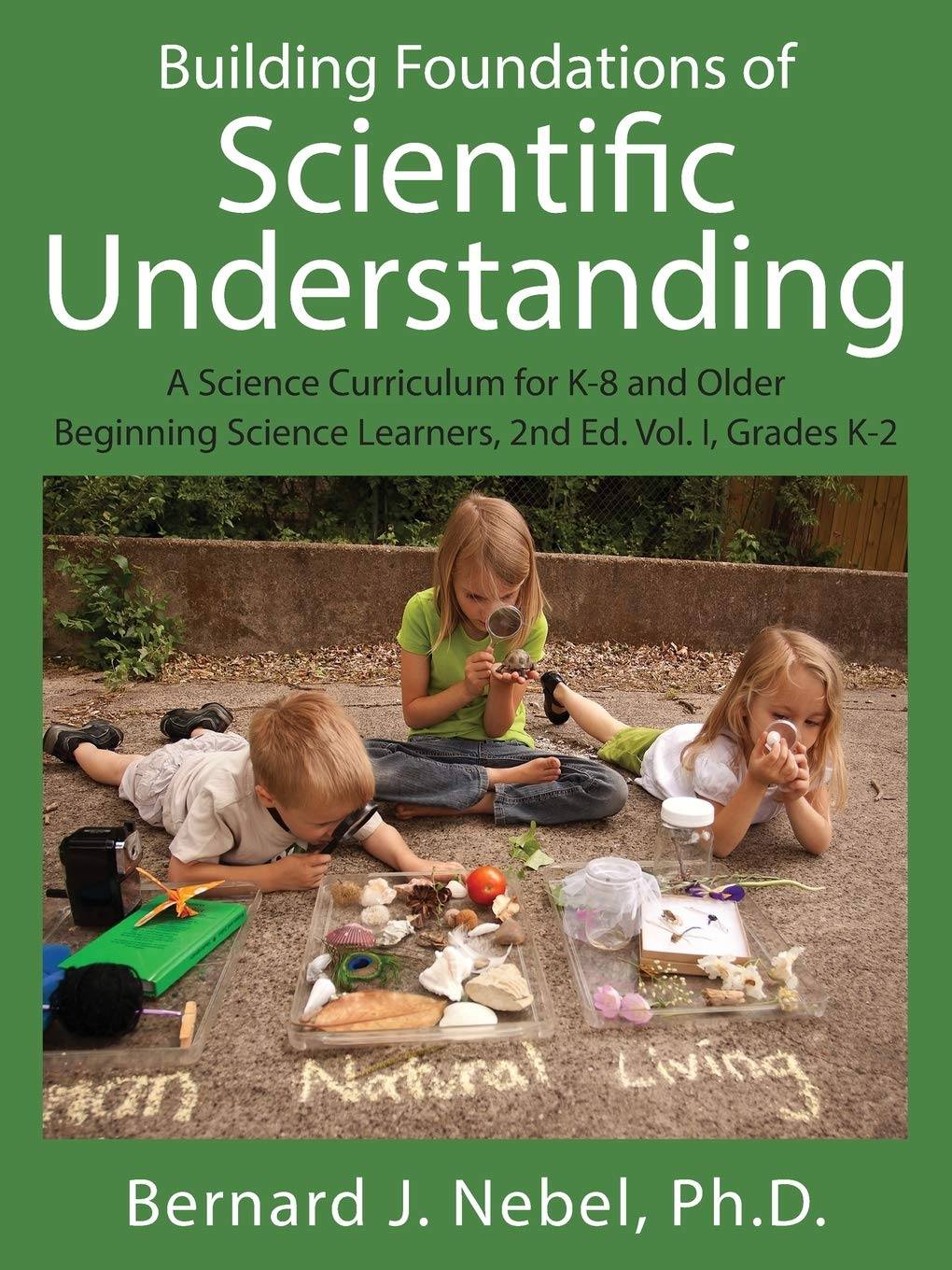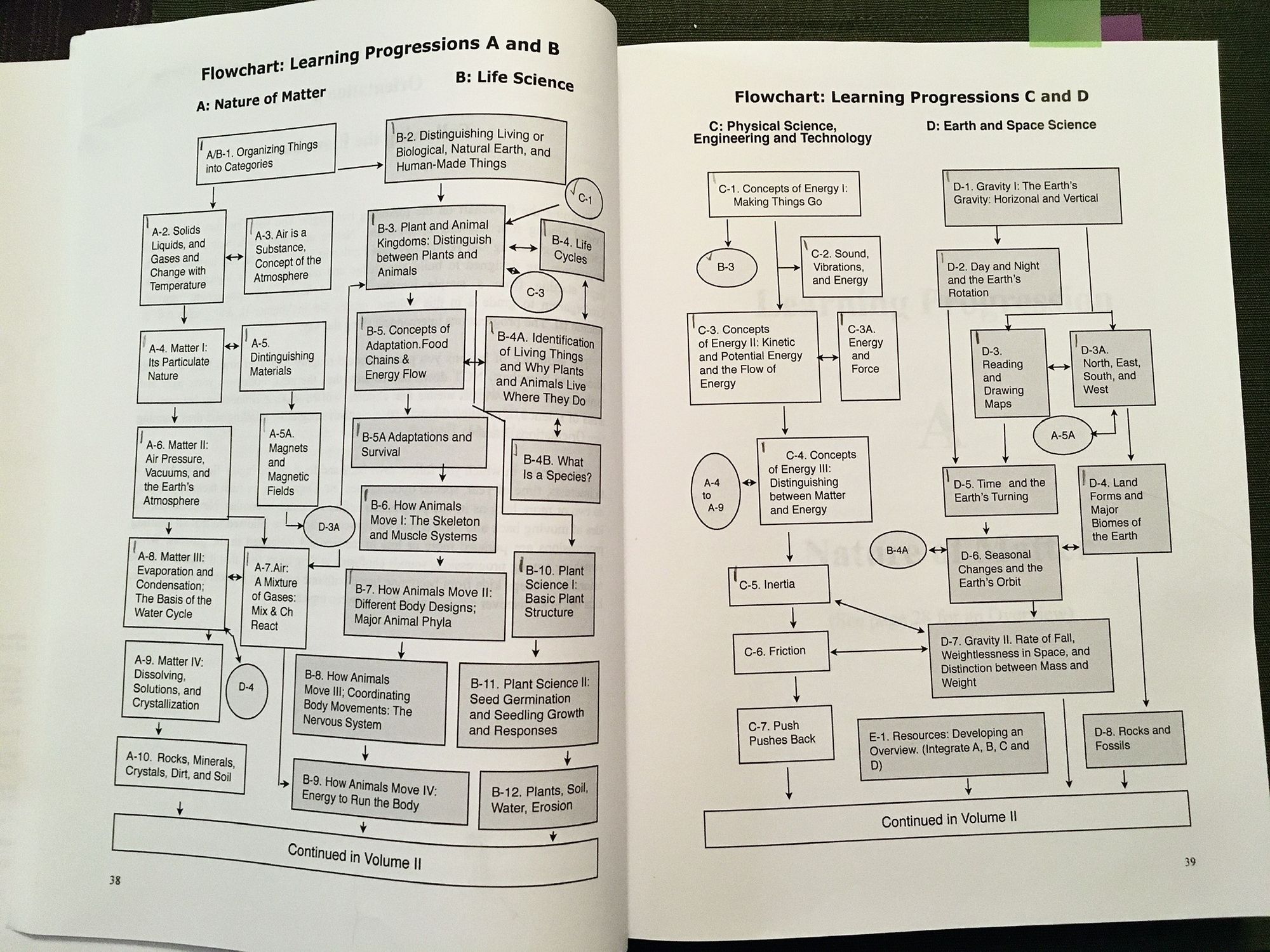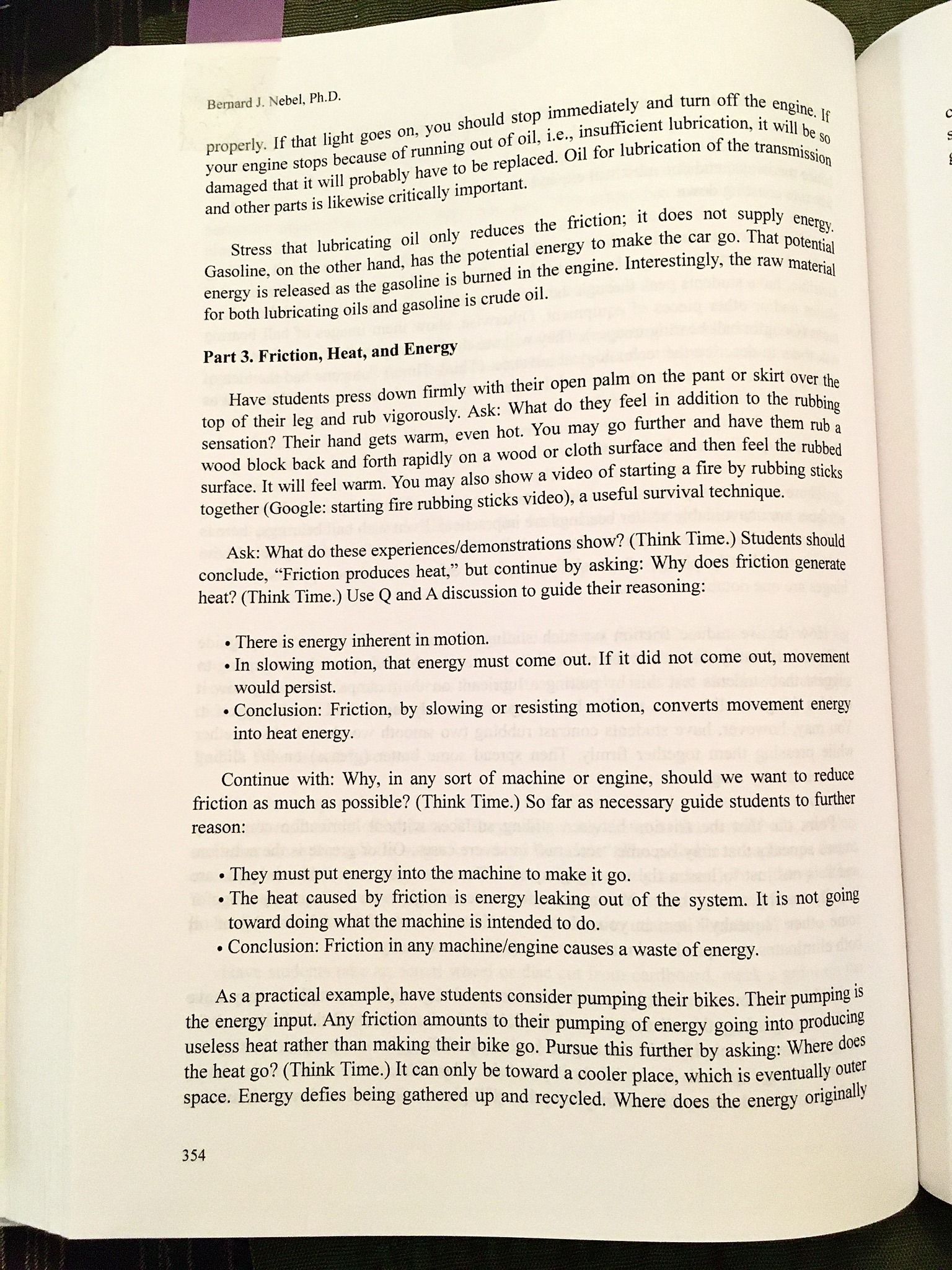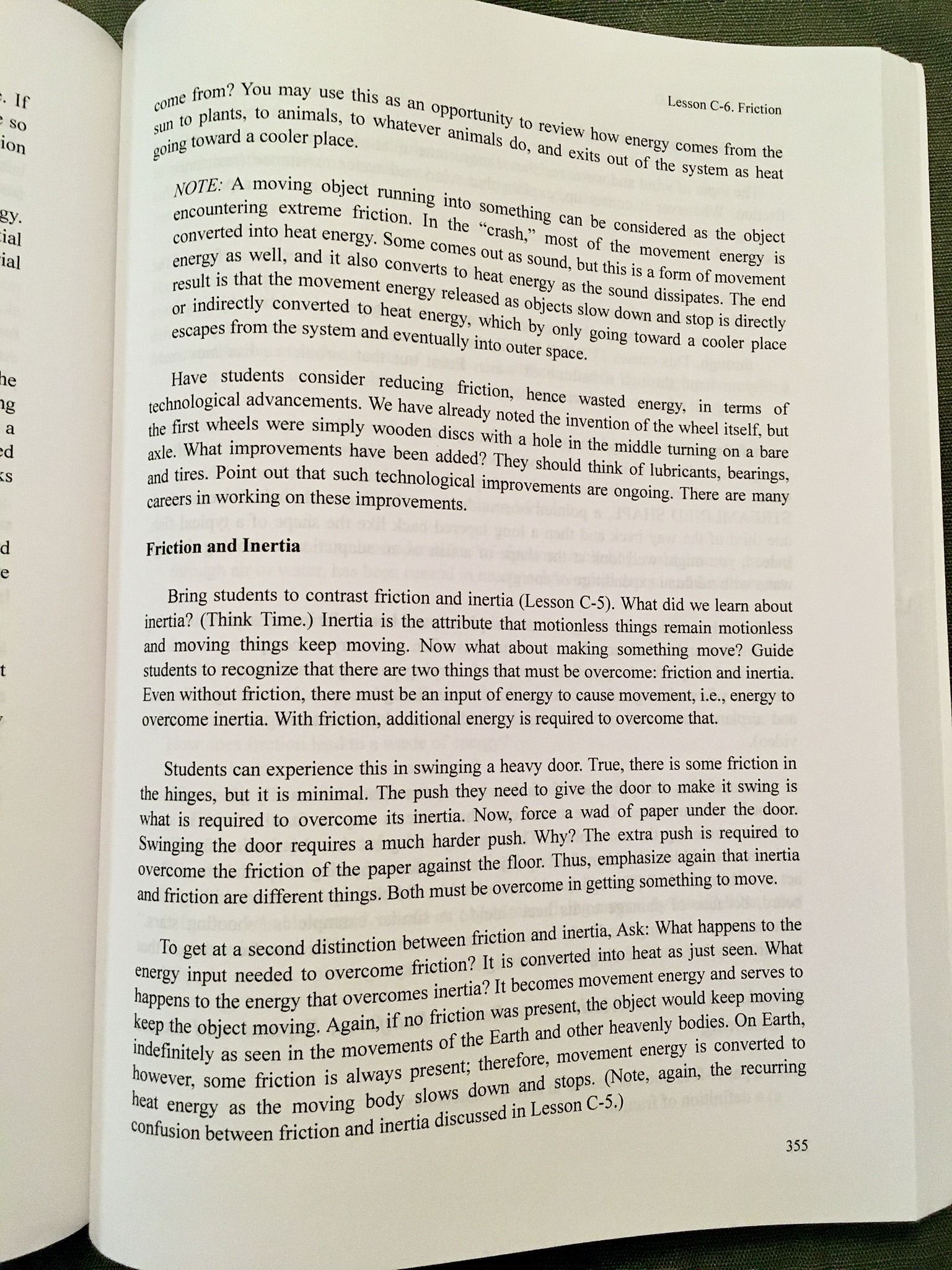Building Foundations of Scientific Understanding
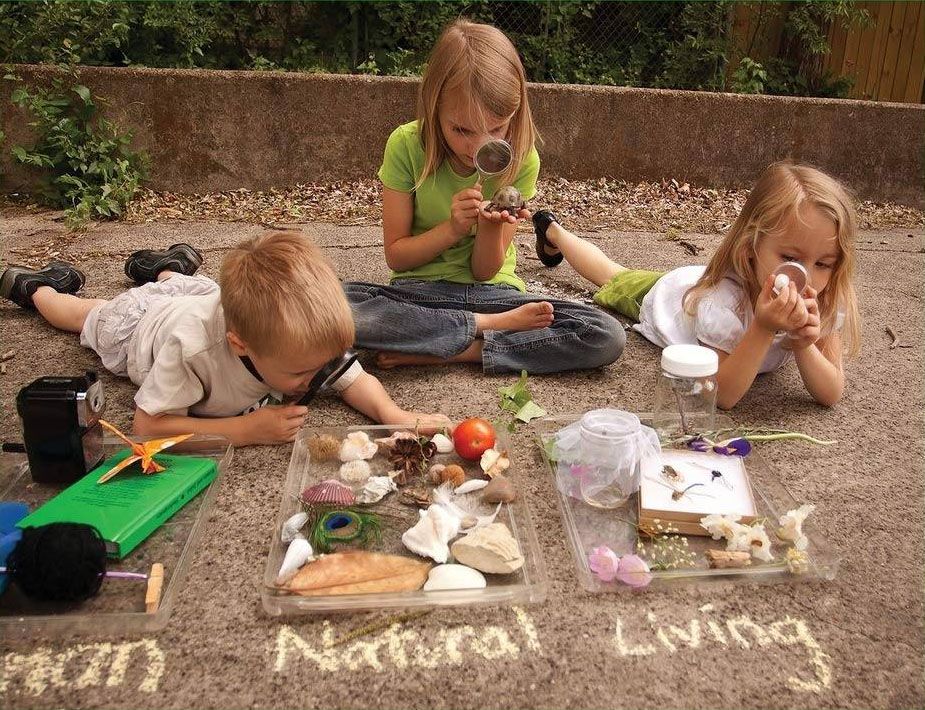
Here's my biggest-bang-for-the-buck curriculum: Building Foundations of Scientific Understanding. The name may not be catchy, but it's accurate—it does what it says on the tin. In homeschooling circles it's commonly shortened to BFSU.
I love this book, because it truly does step you through building up someone's fundamental understanding of how the world works, AND does it by nudging them to notice the world around them and puzzle things out for themselves. It encourages curiosity, wonder, problem solving, and experimentation.
Here's how it works:
- The book groups lessons into four areas of study, and the idea is that you bounce between them as you wish, keeping in mind how lessons learned earlier in one area of study will help build a strong foundation of understanding for another area of study. A chart at the front of the book shows how the lessons build on each other. For example: learning about how plants store energy from the sun builds on earlier learning about what energy is, so you want to make sure you cover that first, and the chart helps you quickly see those prerequisites. Other than that, you choose the next lesson based on what materials you have handy that week, what the weather is suited to, and most of all what your kid is currently most receptive to. It's flexible.
- The book has a long intro section that helps you get in the groove of how to teach the lessons—mainly how to not get in the way of their natural curiosity and guide them toward solid scientific thinking.
- Each lesson is broken into two or three parts. Teaching one part takes about a half hour. I'll generally space them out to do a part every other day or every third day, so we'll cover a whole lesson in about a week.
- The beginning part of the lesson's guide goes over what materials you'll want to source. The materials are mostly easily available household supplies, I've had to make a few inexpensive purchases that I haven't minded a bit and have seen repeated use, stuff like a good teaching magnet kit and a spring scale. I read a lesson thoroughly a couple weeks before I teach it, so I can order anything I'll need and start thinking about where it'll fit in the order of things I want to teach.
- The lessons themselves are written out as a sort of guided discussion suggestion, with lots of socratic prompts to give the kid, and prompts for you to shut the hell up and let the kid think on their own for a bit. (Think time.) I re-read a specific lesson part the night before I teach it, and sometimes I'll jot down a checklist of the "beats" I want to hit in our discussion and experimenting so I can teach it without having the book out in front of me. I've taught some of the lessons when we've been out for a nature walk, for example. I've included screenshots of our next lesson, on friction, so you can get an idea what it's like.
- There's a Facebook group for people using BFSU: Building Foundations of Scientific Understanding - BFSU. I've occasionally found it helpful when I've wanted a little more guidance figuring out how to approach a lesson.
I feel comfortable that this is a solid science program. In my own observations from the secular homeschooling community, I've noticed again and again that people who themselves have a work history in the sciences—your biology, chemistry, physics PhD types—if they're homeschooling, this book is almost always what they've chosen to use with their children. I myself spent a hefty chunk of my work career deep in research science, mostly doing genomics and other cell biology.
This one book costs just $35 and has enough science lessons to last for a couple of years or so. That's dirt cheap! Most of the other curricula I buy (for math, language arts, etc) typically cost about $80-$180 and lasts us about a half-year. I feel like you can't go wrong grabbing this book.
This book is Volume One, and is labelled as grades K-2, but really it's just the first book and is easily adaptable to any age, if you're getting started with a fourth grader, this is still the place to start.
Here's what makes this book not the choice for some families: while it's written in a way that makes it accessible to anyone, no science background necessary, it does require you to take the time to build a bit of that foundational understanding for yourself in advance, so that you can be ready to build up your kid's understanding. That just isn't a fit for some folks, some people want something a bit more scripted, or videos that do the heavy lifting.
When I was choosing a science curriculum, I also looked closely at a couple of video series of guided science lessons and experiments: Mystery Science and Generation Genius. They both look like a lot of care and production went into them, and they're both popular with the homeschool set. In the end I felt that those leaned more heavily on trying to attract interest with flash & bang, and I felt that my kid was going to connect better with meaty discussions and more practical experiments. There were about four other science curricula I looked at, and they didn’t leave enough of an impression for me to even remember why I passed on them.
A year into using this, I feel good about my choice. Wanda regularly demonstrates an understanding of the topics we've covered, by bringing the concepts up in other conversations.
If you choose to buy this book, please buy it from an independent bookstore, like my wonderful friends at Alibi Bookshop! You can buy online for delivery here: https://bookshop.org/shop/alibibookshop, search for "building foundations of scientific understanding". Look for the one with this photo on the cover! The first edition has a different photo on the cover, and is still floating around in book listings, you want the second edition.
